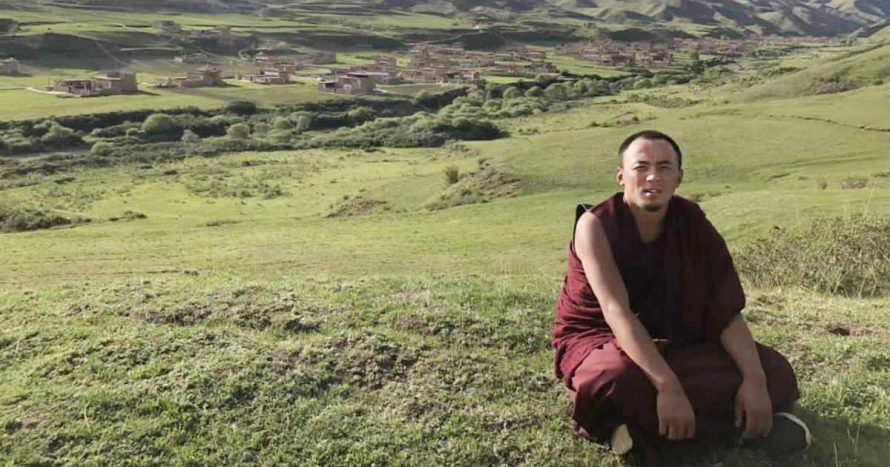
The Chinese government has detained a 29-year-old Tibetan monk for more than a year and prevented him from communicating with the outside world after he posted his opinions about Tibetan issues on a popular Chinese social media platform.
Rinchen Tsultrim (known in Chinese as Renqing Chizhen) faces accusations of “suspected incitement to split the country.” The Ngaba (Chinese: Aba) County Public Security Bureau arrested him on Aug. 1, 2019 at Kardo in Ngaba County in the province of Sichuan. He has not been heard from or seen since then.
The authorities allegedly arrested Rinchen for peacefully expressing his thoughts on a range of Tibetan political, social and cultural issues on his personal and group chat forums on the popular Chinese WeChat app. An “inquiry notice” issued by the Ngaba County National Security Bureau summoning a Tibetan for police inquiry at the Barma (Ch: Waerma) Township police station stated that Rinchen was suspected of separatism.
The International Campaign for Tibet believes that Chinese authorities will charge Rinchen with “endangering national security” for the thoughts he shared on WeChat—which is a government-approved app—lamenting the dire situation in Tibet, which China brutally annexed more than 60 years ago and continues to rule with an iron fist.
The Chinese government maintains tight control over all forms of communication media, and the local authorities in Tibet closely monitor contacts between Tibetans in Tibet and those in foreign countries, alleging that they are “endangering national security” even when they merely peacefully express their views online.
Several exile Tibetan media outlets have published reports on the incommunicado detention of Rinchen. The International Campaign for Tibet verified information about his detainment with credible sources in exile.
Online activities
The police detained Rinchen on Aug. 1, 2019 along with two other Tibetans. Although the two other Tibetans were later released, Rinchen continues to be held in incommunicado detention.
Despite multiple efforts by his family to learn about his whereabouts, authorities did not inform his family members where Rinchen was being held. The authorities told the inquiring family members to leave supplies for him to be passed on via their offices.
The authorities would at times say Rinchen was being detained in Barkham County, and at other times say he was in the city of Chengdu, but never revealed his exact location.
Over the years, Rinchen’s online activities led authorities to put him under surveillance. In particular:
- The Public Security Bureau warned him twice in 2018 for posts on his personal and group chat forums on WeChat. Rinchen had actively shared his thoughts and writings under his current WeChat ID “niren1959” since 2016. Before 2016, the authorities censored or suspended his prior WeChat accounts several times.
- His personal website—titled in Tibetan, “བོད་དུ་ཆད་ལྟ་བ།” (“Skepticism on Tibet”)—where he published his writings, was shut down.
- Rinchen’s two-hour telephone conversation with a Tibetan living abroad on the birthday of the disappeared Tibetan Buddhist leader the Panchen Lama on April 25, 2019 had been monitored and recorded by the authorities.
- The authorities monitored his distribution to remote areas of Tibet, via the post office, of a scripture that he had obtained from abroad.
Demanding Rinchen’s release
Rinchen Tsultrim was born at Kashul Village, a 15-minute drive from Ngaba County, to Tashi Dhondup (father) and Tsomo (mother). At six, he became a novice monk at Nangshik (Langyi) Monastery, the largest Bon religion monastery in Ngaba County.
The International Campaign for Tibet is concerned that Rinchen has been detained solely for expressing his views peacefully. According to the information available, he exercised his rights as protected under international law.
Rinchen’s whereabouts must be revealed immediately, and he must be released.
ICT is also particularly concerned about his well-being, as torture is “deeply entrenched” in the Chinese criminal justice system, according to the United Nations Committee Against Torture. There have been a number of cases of Tibetans who have died as a result of torture in detention. Recently, for example, a 36-year-old Tibetan mother of three named Lhamo passed away in detention in August.